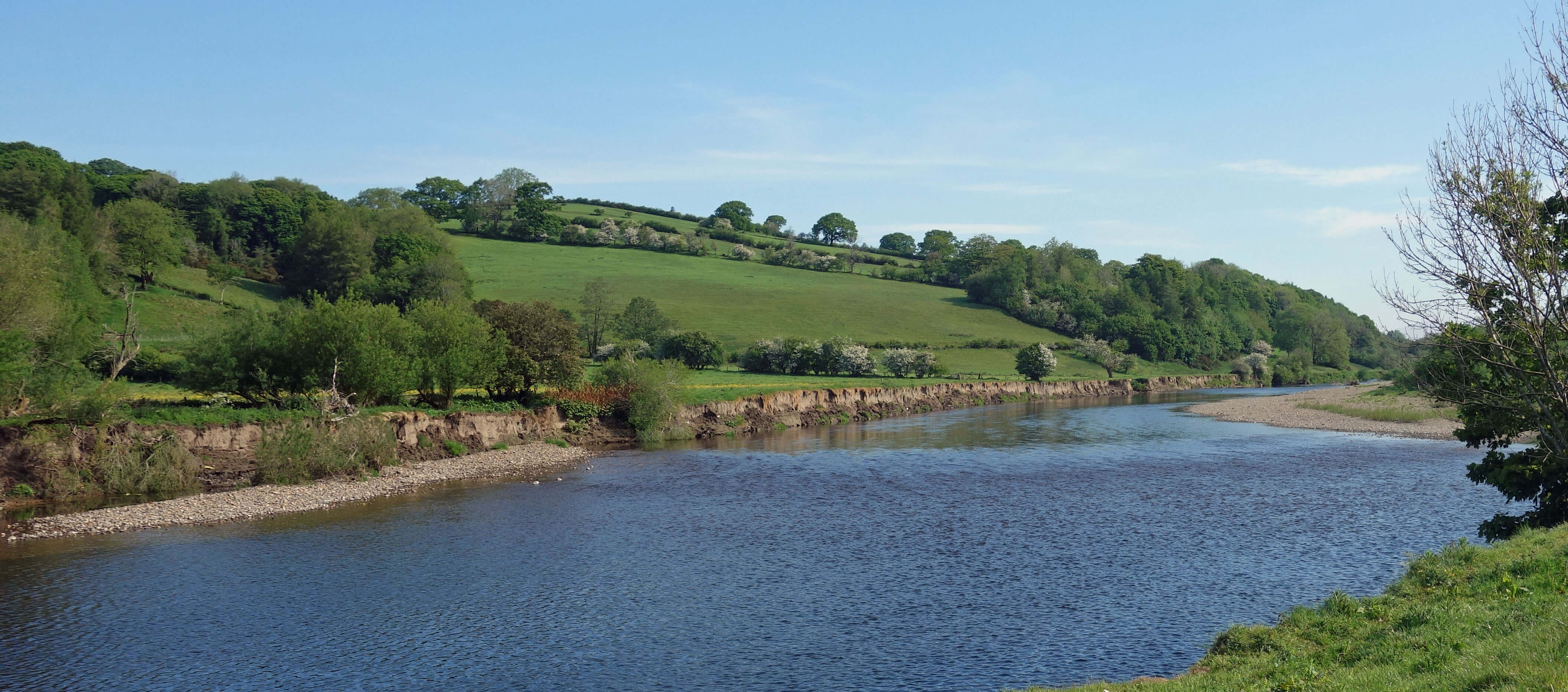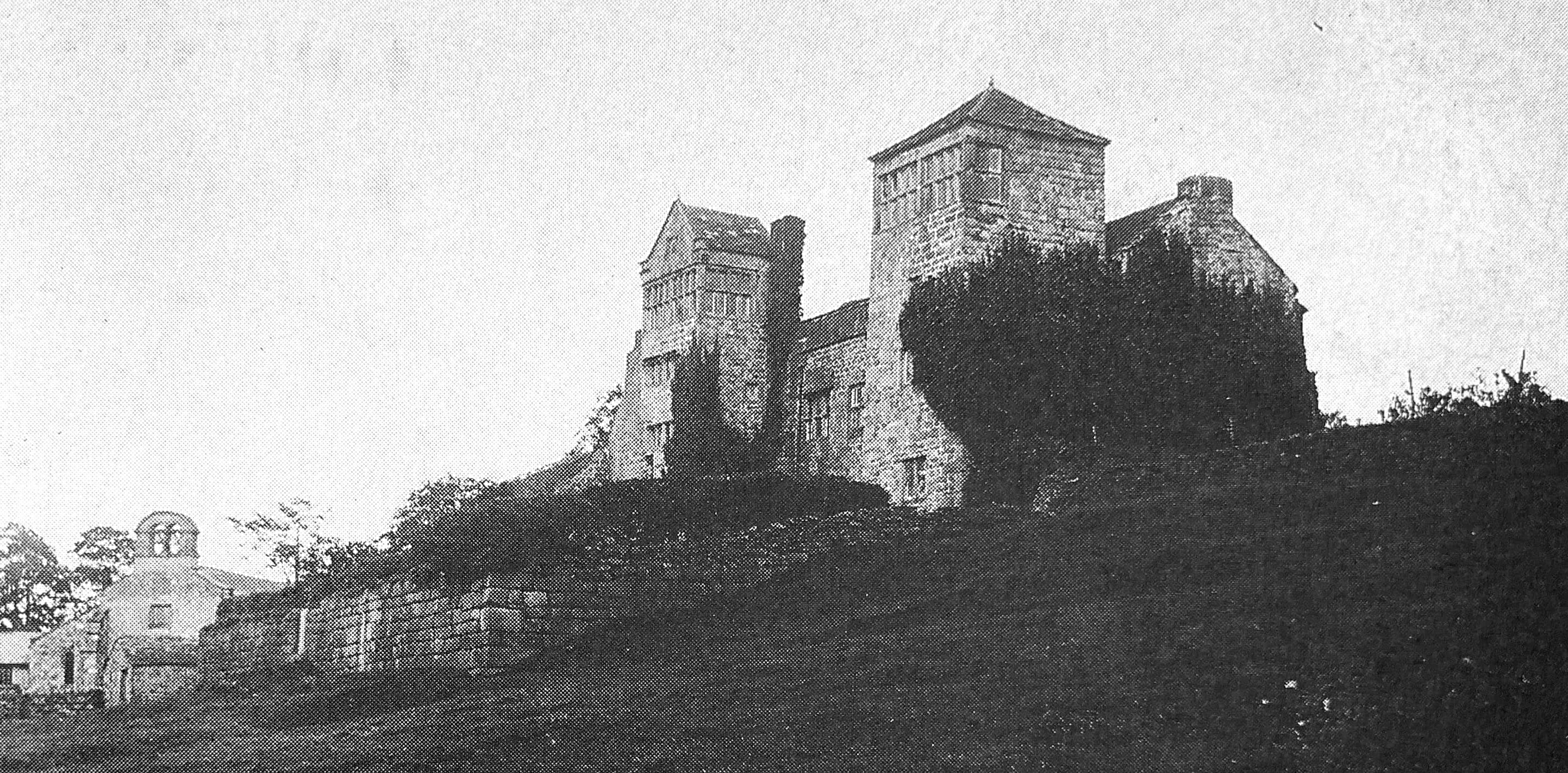
Home
Preamble
Index
Areas
Map
References
Me
Drakkar
Saunterings: Walking in North-West England
Saunterings is a set of reflections based upon walks around the counties of Cumbria, Lancashire and
North Yorkshire in North-West England
(as defined in the Preamble).
Here is a list of all Saunterings so far.
If you'd like to give a comment, correction or update (all are very welcome) or to
be notified by email when a new item is posted - please send an email to johnselfdrakkar@gmail.com.
This is one of several relatively short items about local walks during the first
coronavirus lockdown, April - May 2020.
93. The Brookhouse - Claughton Circular
There are some walks that don’t need a specific focus – such as a peak to reach, a stone circle to visit, a
cuckoo to listen for, and so on – because they provide such a variety of landscape that they can simply be enjoyed
as walks. This circular walk, taking in the serene Lune valley and the slopes of Caton Moor, is one such walk.
 We walked to the bend in the River Lune below Aughton Woods, as we did in
Sauntering 81, noticing that the ponds we
photographed then were now dry mud, as I’ve never seen them before. The wide, flat valley provided
views up towards Ingleborough and Whernside, and to our right to the windmills of Caton Moor, which we
would pass much later. We continued on the south bank of the Lune in quiet isolation.
We walked to the bend in the River Lune below Aughton Woods, as we did in
Sauntering 81, noticing that the ponds we
photographed then were now dry mud, as I’ve never seen them before. The wide, flat valley provided
views up towards Ingleborough and Whernside, and to our right to the windmills of Caton Moor, which we
would pass much later. We continued on the south bank of the Lune in quiet isolation.
We saw
nobody at all until we reached Claughton. There were only sheep and birds for company, with the
cattle in fields far distant from us. Cattle, in fact, are the only potential problem
when walking this idyllic stretch of the Lune. Unused to walkers in their fields, they can be
frisky and difficult to bypass, which is why I prefer to do this walk on a bright winter’s
day when the cattle are in their
barns. They were no problem to us on this occasion.
We noticed that the Brickworks (Sauntering 87)
was still dormant.
If I remember correctly, it takes about a week to get the kilns up and running, and they obviously won't start that
until there is a sufficient, continuing demand for bricks.
From Claughton we walked up the steep track that
passes Claughton Hall. It is dark and sheltered, contrasting with the bright openness of the floodplain, with a
woodland of tall conifers to the right.
Claughton Hall
is, to my mind, a uniquely ugly building but the owners in the 1930s must have thought lovingly of it as they had it
moved stone-by-stone from beside the church (shown right) up the hill.
The present owners have thoughtfully planted thick
leylandii by the track so that we cannot see it.

Instead, we can admire the views eastwards towards the
Yorkshire Dales. The haze, on the hottest day of the year so far, had reduced the hills to grey outlines but closer below the region around
Hornby was laid out as a map, increasingly so as we climbed. We noticed a few newish ‘milestone’ signs indicating
various features, which was puzzling as I doubt that they were invitations to visit the indicated
features – although we also noticed that the high deer fence had a few gaps, as if inviting entry (perhaps for
deer, not people).
As we continued above the woodland we heard a cuckoo. In fact, we thought we saw it, on a telegraph
wire near the clay pit until harassed away by a smaller bird. We also, of course, heard curlews, lapwings and
skylarks. The fact that they are such familiar sounds here should not make us forget what cheery, uplifting sounds
they are.
We passed Moorcock Hall, which was derelict for
many years before a recent renovation. However, the renovation lacked planning permission, and it is not
obvious now whether the renovation was completed to enable the building to be occupied. The ‘front’ is, I
understand, to the south to avoid the worst of the
weather in this exposed location but the best view, over the Lune valley to the Lakeland hills, is to the north.
Unfortunately for us, there was a dark haze making it impossible to identify any hills beyond
Morecambe Bay. We could, however, see where we were walking two or three hours before, far below by Aughton Woods. It is always
pleasing on a long walk to see that you have indeed walked a long way.

The view from Moorcock Hall to the Lune valley, the Lake District hills beyond sadly obscured by a dark haze
After strolling down Quarry Road, we paused as we neared Brookhouse, as we always do nowadays, to see how the herons are
getting on (Sauntering 85).
We have never been sure exactly how many young there were but it seems that some have fledged and the one we could see today was close to it.
Date: May 20th 2020
Start: SD543644, Brookhouse (Map: OL41)
Route: N – Bull Beck Bridge – NE on south bank of the Lune – Claughton Beck –
SE – Claughton, Claughton Hall – S – Moorcock Hall, picnic spot – W on Quarry Road – Brookhouse
Distance: 7 miles; Ascent: 245 metres
May 24th 2020 (comment added after this item was posted): This blog is pausing. On March 20th I wrote, in
Sauntering 78, before the lockdown,
that “I am not
sure that it will be possible or appropriate to sustain the light-hearted tone of these missives. We’ll see how it
goes.” Well, I have tried. But I have become increasingly saddened, depressed and angered by the growing death-toll
of the pandemic and by the callous, lying incompetence of our politicians – and the thought that we are stuck with them and
possibly it for some time. I only write for amusement, mine and any reader’s, and there is nothing at all to be amused
about at the moment. So, I’m giving it a rest.
Home
Preamble
Index
Areas
Map
References
Me
Drakkar
© John Self, Drakkar Press, 2018-

Top photo: The western Howgills from Dillicar;
Bottom photo: Blencathra from Great Mell Fell


 We walked to the bend in the River Lune below Aughton Woods, as we did in
Sauntering 81, noticing that the ponds we
photographed then were now dry mud, as I’ve never seen them before. The wide, flat valley provided
views up towards Ingleborough and Whernside, and to our right to the windmills of Caton Moor, which we
would pass much later. We continued on the south bank of the Lune in quiet isolation.
We walked to the bend in the River Lune below Aughton Woods, as we did in
Sauntering 81, noticing that the ponds we
photographed then were now dry mud, as I’ve never seen them before. The wide, flat valley provided
views up towards Ingleborough and Whernside, and to our right to the windmills of Caton Moor, which we
would pass much later. We continued on the south bank of the Lune in quiet isolation.


